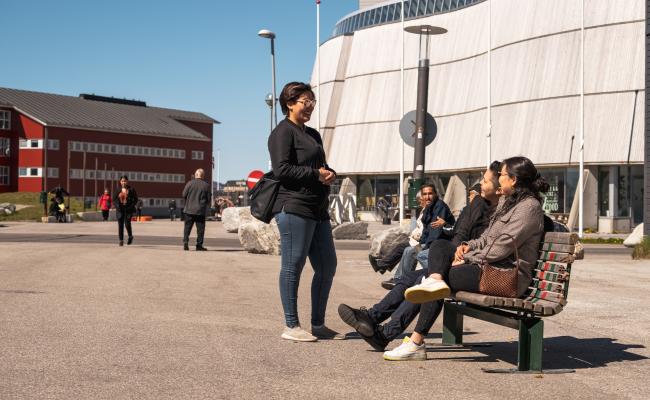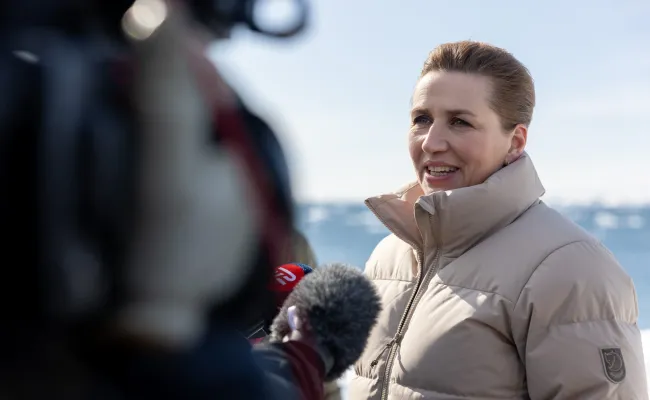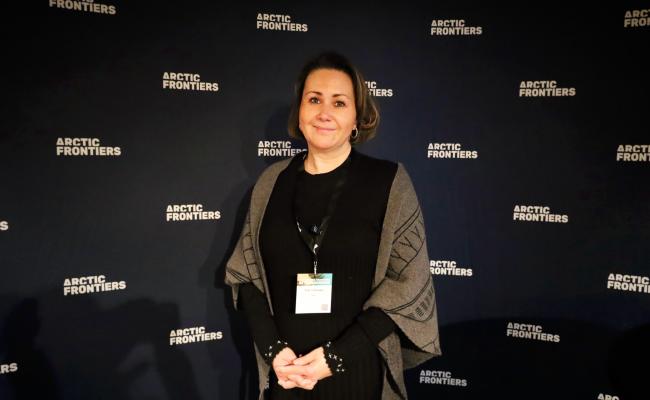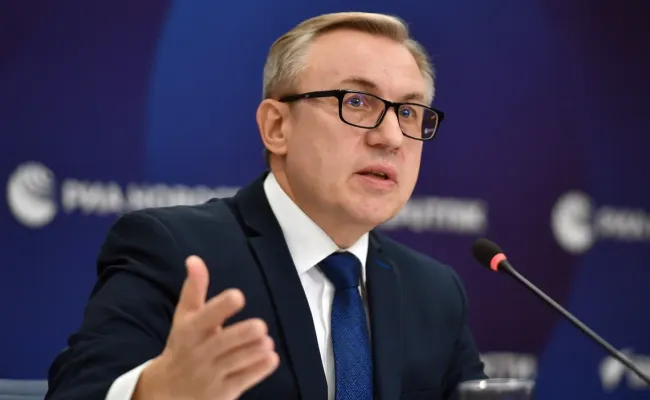“The US Can Become More Unpredictable on Climate Issues in the Arctic Council Than Russia”

Serafima Andreeva, Researcher at the Fridtjof Nansen Institute (FNI). (Photo: Arctic Circle)
The Kingdom of Denmark’s Arctic Council chairship program form a good basis for further cooperation between the eight Arctic states. However, engaging the Trump administration in the council’s work on climate change could be particularly challenging, says FNI researcher.
The Kingdom of Denmark, comprising Greenland, the Faroe Islands and Denmark, recently presented the program for its upcoming chairship of the Arctic Council.
The realm, with Greenland in the driver's seat, takes the wheel in the council on May 12th.
The program outlines four main priorities: Indigenous peoples and communities of the Arctic, sustainable economic development and energy transition solutions, oceans, climate change, and biodiversity.
"The program appears well-developed and has clear priorities. There is an expected and necessary focus on Indigenous peoples and those who actually live in the Arctic," says Serafima Andreeva, Researcher at the Fridtjof Nansen Institute, to High North News.
"Its content is also in line with the shift we have seen for a while now, that the main focus is no longer on the Arctic Council's survival, but on its functioning in practice."
Also read (article continues below)
Constants and variables
The Kingdom of Denmark has clearly designed the plan for its chairship within an established, agreed-upon framework, with a natural and expected distinctive character, according to the FNI researcher.
"The program follows up on the council's strategic plan, adopted in 2021, and the priorities are in line with what all eight Arctic states have previously agreed on. At the same time, the program is characterized by the realm's, and particularly Greenland's, priorities and interests when looking at the local level."
Therefore, there is reason to believe that the chairship program will serve as a basis for a functioning cooperation between all Arctic states, but certain reservations must be made, according to Andreeva.
“I believe the US can become more unpredictable on climate issues in the Arctic Council than Russia," she points out.
These are values in direct contrast to Trump's policy.
Contrasts
"The relationship between the Western Arctic states and Russia has been strained following the Ukraine War. Despite this, Moscow has acted predictably in the Arctic Council. The Russians have been clear that they will participate as long as their national interests are safeguarded, and that there are no excessive restrictions on their involvement," Andreeva notes and continues:
"The US, however, particularly with Trump 2.0, will be more challenging to read. The Kingdom of Denmark prioritizes climate, Indigenous peoples, and sustainable development, which are values in direct contrast to Trump's policy. It is difficult to envision the Trump administration being particularly enthusiastic when it comes to topics like these."
At the Arctic Council's ministerial meeting in Rovaniemi in 2019, no joint statement was issued because the US' then-Trump administration would not support a text addressing climate change.
Also read (the article continues below)
USA vis-à-vis Greenland
"At the same time, the US has increased interest in Greenland, and the Arctic Council is an arena where communication between Greenland and the US is possible. Yet, if the Americans were to think of 'using' the Arctic Council as an arena of influence, they would still have to comply with the Council's fundamental norms, which include that climate change and Indigenous rights are important."
President Donald Trump has specifically expressed an ambition for American control over Greenland through annexation, which has been met with strong and firm counter reactions from Nuuk and Copenhagen.
He and his ministers will probably also encounter considerable steadfastness from the Greenlandic side in the Arctic Council when it comes to climate work, the FNI researcher believes.
He and his ministers will likely also face steadfastness from the Greenlandic side in the Arctic Council regarding work on addressing climate change and its impacts, believes the FNI researcher.
"It will likely be more difficult for the Trump administration to appeal to Greenlanders when the new chairship program is so clear on addressing the climate crisis based on Indigenous perspectives and needs. These principles are in themselves a direct contrast to the policy Trump represents," she points out.
Also read (the article continues below)
There are still many reasons to be optimistic regarding the Arctic Council's future.
A glimpse of light
Keeping the Arctic Council together while strengthening its functioning will likely require a great deal of effort.
At the same time, there are several indications that it will go well, despite current and expected turbulence, as the FNI researcher sees it today.
"I believe that there are still many reasons to be optimistic regarding the Arctic Council's future, for now. The Council, having survived so far, is due to the cooperation being beneficial for all eight Arctic states. This is a point of reference in itself," Andreeva points out and continues:
"Another reason for hopefulness is that although the Arctic Council is primarily aimed at research work, the Council has a symbolic position which has so far been important for all Arctic states to hold on to. Cooperation in the Arctic Council also serves as a counterweight to non-Arctic interests in the North and is possibly a forum where such interests can be kept in check."
"A central optimism cue is also that Arctic Indigenous organisations have a place at the table as permanent participants in the Council, something the Kingdom of Denmark also emphasized when launching its priorities. This is in itself a clear signal that the Arctic is not a 'no man's land' without governance, but a managed region of national and local significance. We will see how Trump's USA responds to this."
Focus on the tangibles
Faced with waves in the wake of the Trump administration, the solution may be to keep a steady eye on the Council’s tangible work, Andreeva says.
"During Trump’s previous presidency, the strategy within the Council was to sit tight, and a similar approach has been taken in the face of geopolitical tensions since Russia’s full-scale invasion of Ukraine."
"It is conceivable that we will continue to see an approach in the Arctic Council that focuses on the very concrete and issue-specific, while downplaying the geopolitical. The priorities of the Kingdom of Denmark lay the foundation for making this possible," she states.







